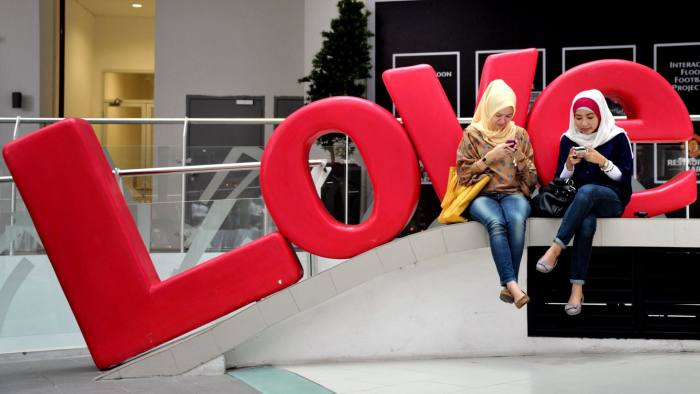- Details
- Written by: Kamran Mofid
- Hits: 4210
The Mother of All Questions: What is Love?

Photo: youtube.com
Let us see what the sages and philosophers have reminded us of what true love is.
As Prof. Simon May writing in the Financial Times has remarked: ‘Today millions of people celebrate one form of love and one only: romantic love, the love that speaks the language of erotic desire.
‘As we settle down to our candlelit dinners – or, as singletons or conscientious objectors to Valentine’s day, wander past packed restaurants envying or pitying the serried rows of couples – we might ask: why do we so privilege romance?
‘Why, for example, do we not have a St Francis day for love of nature? Or a world friendship day named after Aristotle (who considered friendship the supreme form of love)? Or an anniversary when love between parents and children is celebrated with more than the card and flowers given, one-sidedly, on Father’s or Mother’s day?
‘Indeed, why do such alternative love festivals sound faintly absurd to our contemporary ear?
‘The answer lies in the unique promise of romantic love, as it has been conceived of since the late 18th century, to satisfy five modern and, taken together, western ambitions.’…
The irresistible appeal of the romantic ideal
Photo: AFP/Getty Images/Via Financial Times 12 Feb 2014
Read the original article by Prof. Simon May HERE
Socrates on Love*
“Plato’s Symposium takes place in a dining room in a back street of Athens, a place where conversation is a factory for beautiful ideas, ideas of beauty, beautiful things. Even the silences sparkle.
At this dinner party, set more than 2,400 years ago, Love is the night’s theme. The Symposium can still be read as one of the greatest stories of love in Western literature. Socrates is among the guests. The only subject in the world that Socrates believes himself to be the unsurpassed master of is love. ‘I cannot remember a time when I was not in love with someone.’ Socrates loves his fellow men with an overpowering eroticism, and because he believes he can look into their eyes and understand a little about himself as he does so, we are taught that it is through our relationship with the world around us that we can become whole. Socrates sees the massive power of love. We too are just beginning to unpick the complex, psychophysical parcel that love is. Socrates makes our relationships with one another his life’s work.
Socratic love is enormously powerful, it turns the world upside down. What the philosopher knows is that we love love-stories, and our love is often a love-story played out. But nowhere does he mock. Socrates’ love is literal: the point of life is to love it. He is erotic. He states that if Eros passes you by in life, you are a nonentity. All those aspects of love he approves of, as good-life glue for society, since ‘festivals, sacrifices, dances’ are motivated by Eros. And, more than that, love is a guide – a passion for what is good and a horror for what is degrading. And the genuinely heart-warming revelation of Socrates in the Symposium is that dedication to love is not a selfish pursuit. The point of love is not gratification, but symbiosis. And love, desire, ambition, hope, concord, enthusiasm, drive whatever you want to call it – if tended, if not allowed to burn itself out, plays a long game. His love is not flash-in-the-pan passionate. In Socrates’ eyes, it is honesty and a pursuit of knowledge rather than ignorance that leads to loveliness in life. For him, love has a purpose. It is the life-force, the desire to do, to be, to think. It is the thing that makes us feel great about our world, and therefore makes us be great in it. Socrates describes these ‘good’ dynamos as ta erotika – the things of love.”
*The above piece is by Bettany Hughes who is the author of 'The Hemlock Cup: Socrates, Athens and the Search for the Good Life' (2011).
- Details
- Written by: Kamran Mofid
- Hits: 3304
A Compassionate Company for the Common Good: Aravind Eye Hospitals

Photo: aravind.org
“A generous heart, kind speech, and a life of service and compassion are the things which renew humanity.” Buddha
Why Love, Trust, Compassion, Generosity, Respect and Gratitude Trumps Economics: Together for the Common Good- Aravind Eye Hospitals
To all those who are searching for a better path to heal our troubled world:
I ask you to watch this video
To all my compassionate and spiritual academic colleagues seeking to share the best practices with their students:
I ask you to show this video to them
Then, we can all discover how we might create a world for the common good
- Details
- Written by: Kamran Mofid
- Hits: 2608

A SPECIAL INVITATION TO ATTEND
Business for Peace, Ypres, April 10-12, 2014
Prof. Luk Bouckaert, President, European SPES Forum
Dear GCGI Family and Friends,
As a member of the Scientific Committee and also as the co-organiser of the Business for Peace Conference, it gives me a great pleasure to share with you a very speciall invitation from Prof. Luk Bouckaert, President, European SPES Forum, and the Conference’s Co-convener to attend the forum.
I, too, very much wish to encourage you likewise. I am sure you will find the Business for Peace Conference most informative, rewarding and fruitful.
Please below see Prof. Bouckaert’s letter:

